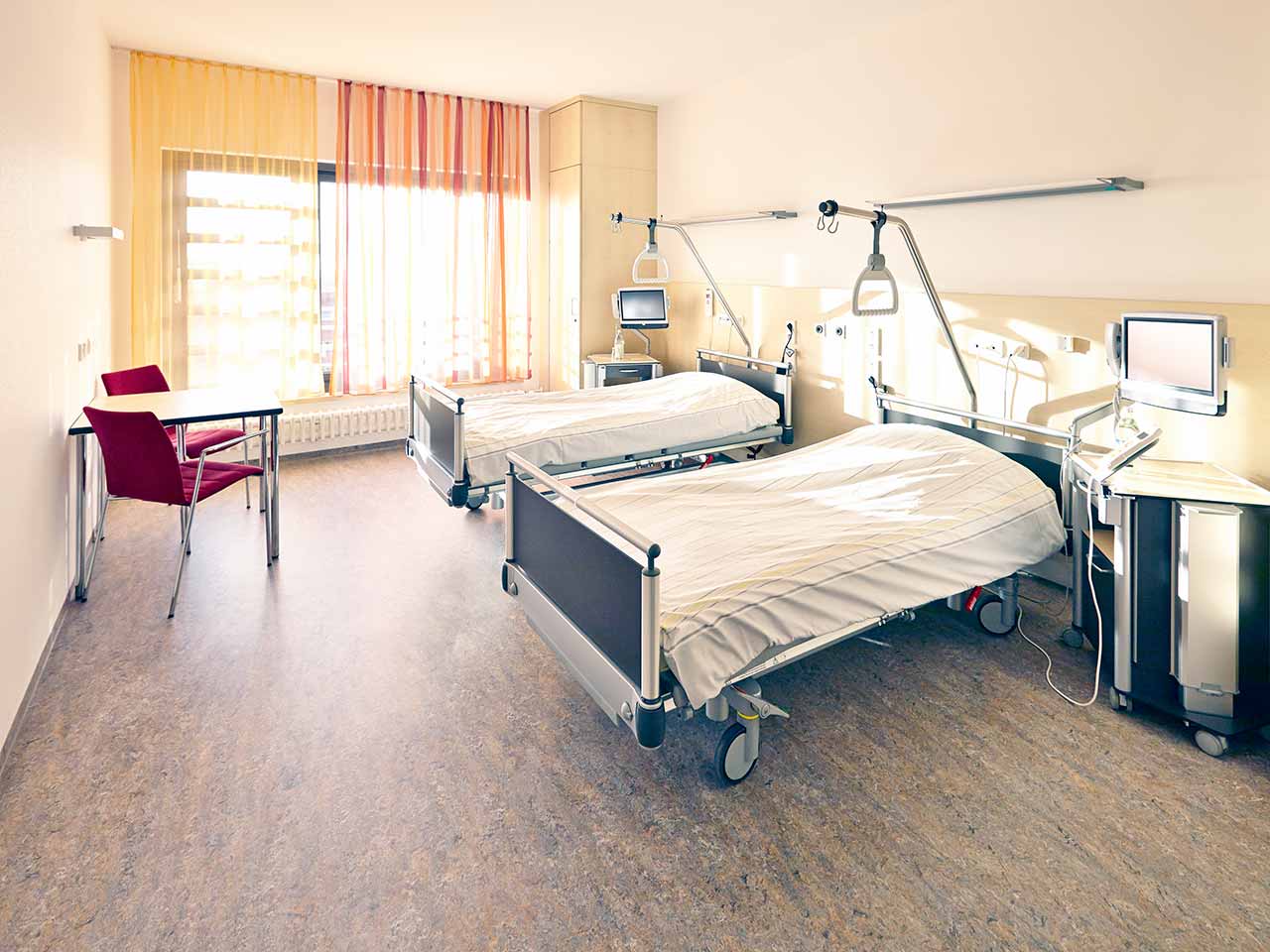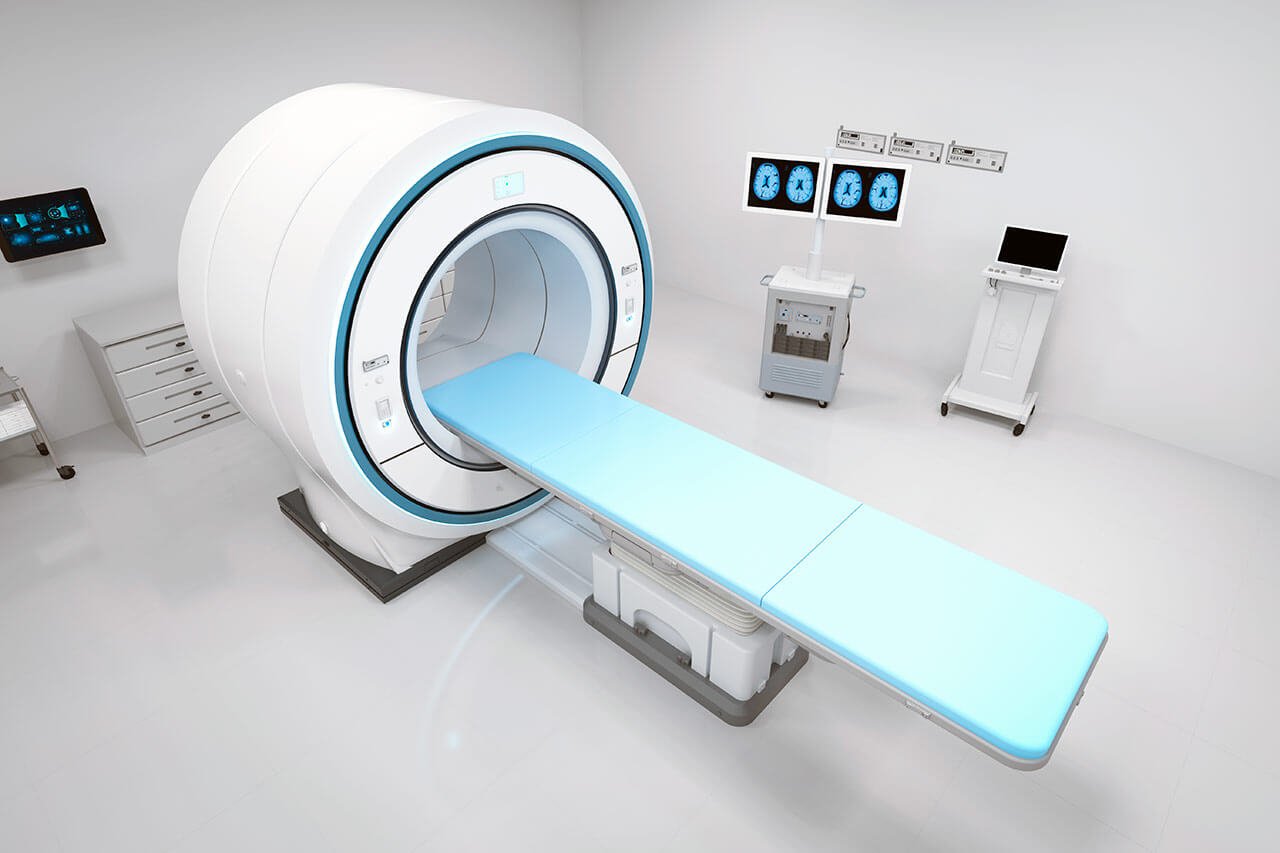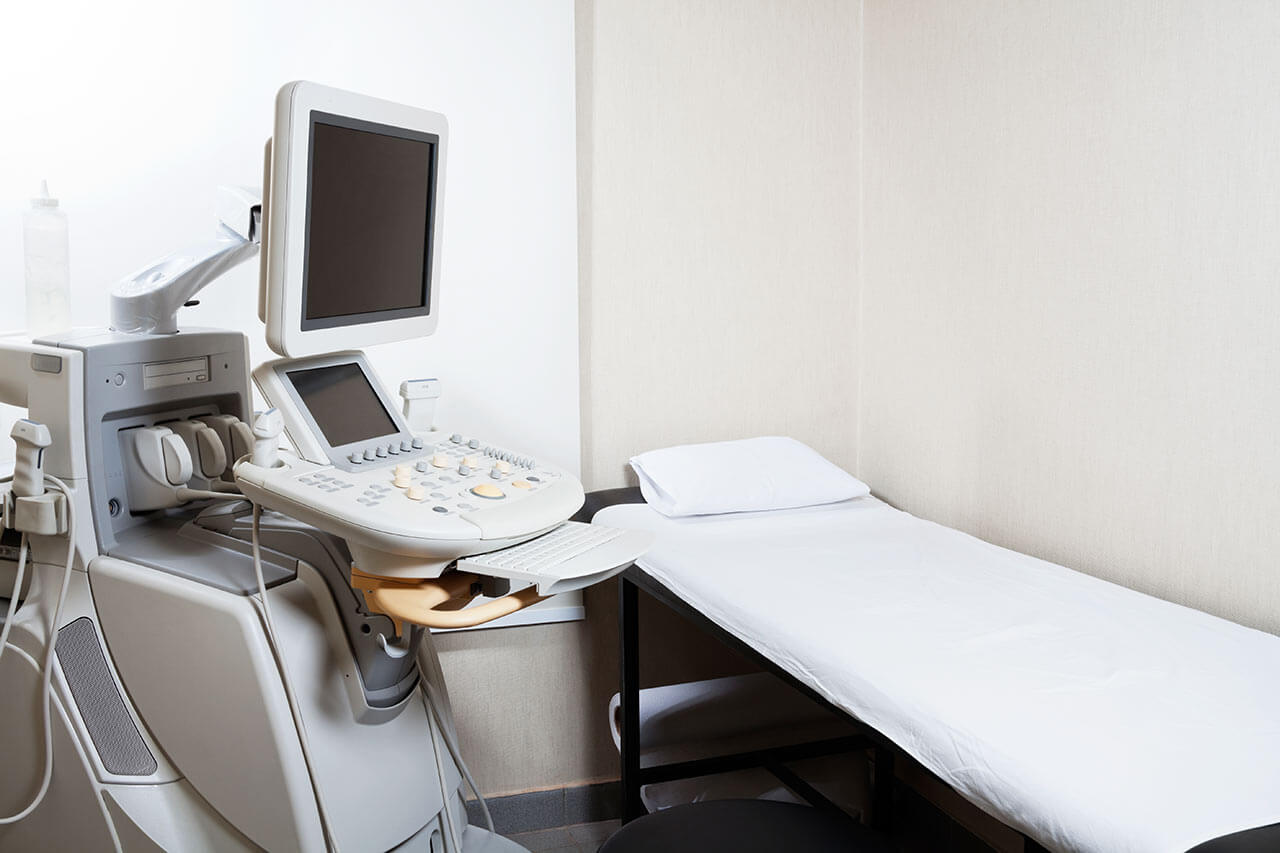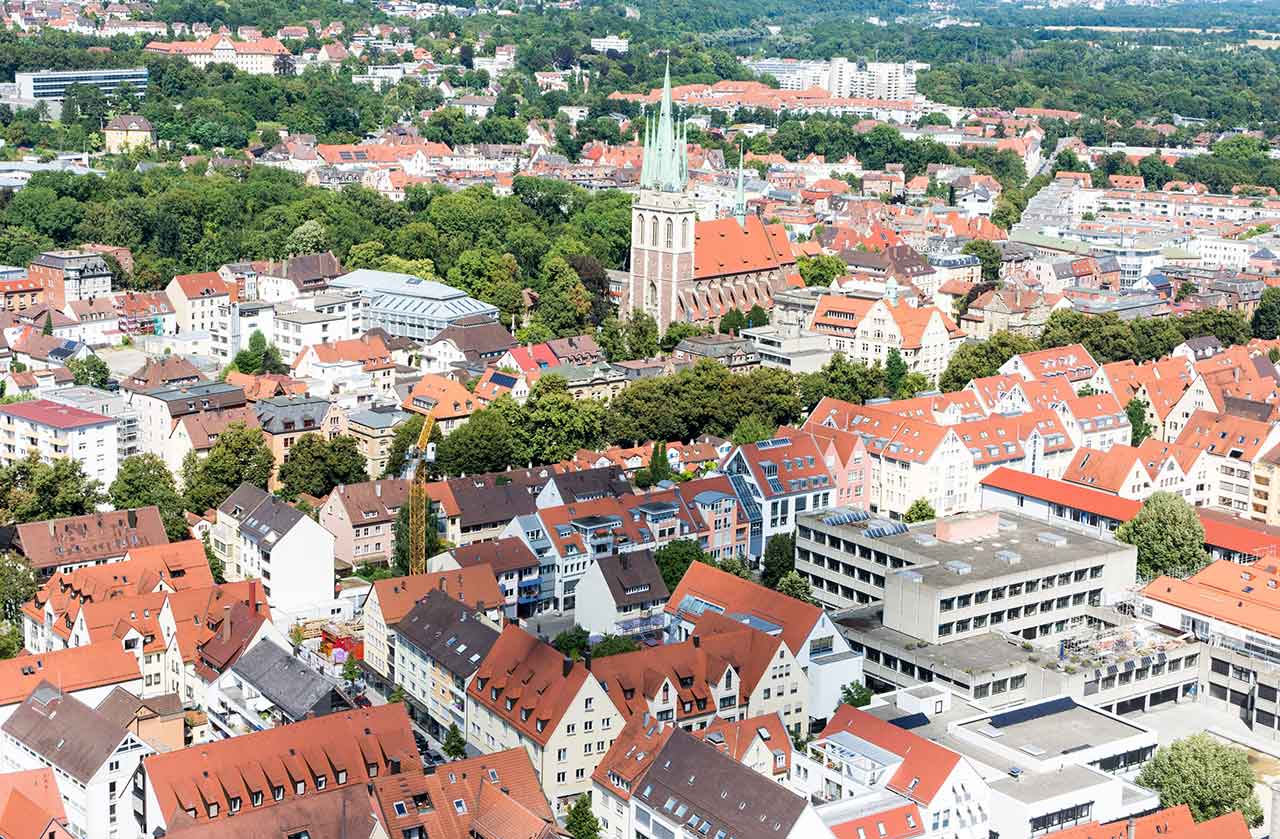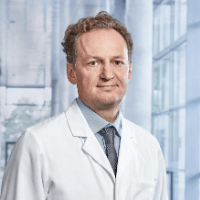
About the Department of Nephrology at University Hospital Ulm
The Department of Nephrology at the University Hospital Ulm offers the full range of medical services for the prevention, diagnostics, and treatment of kidney diseases. The doctors of the medical facility focus on patients with acute and chronic kidney diseases, kidney lesions due to systemic rheumatic diseases, inflammatory kidney diseases, and arterial hypertension. The department houses an advanced Dialysis Center, which provides various types of renal replacement therapy, such as hemodialysis, peritoneal dialysis, continuous venovenous hemofiltration, continuous venovenous hemodialysis, continuous hemodiafiltration, intermittent peritoneal dialysis, lipid apheresis, and immunoadsorption. The center also offers sustained low-efficiency daily dialysis (SLEDD), which is performed using the GENIUS system. For the patient's maximum comfort, the department houses a Nephrology Laboratory where all necessary tests are performed for suspected kidney pathology. The therapeutic procedures are carried out in accordance with the current clinical protocols and recommendations of the German Society of Nephrology (DGfN). The department's doctors treat each patient and their clinical situation with understanding and are always open to personal dialogue. The department is headed by Prof. Dr. med. Bernd Schröppel.
The key focus in the department's clinical practice is on the provision of renal replacement therapy (dialysis). This treatment is indicated for patients with acute and chronic kidney failure. In cases of kidney failure, the kidneys cannot perform their usual functions, that is, removing metabolic waste products from the blood, maintaining a normal balance of water and electrolytes, and synthesizing the necessary substances to control blood pressure and the synthesis of red blood cells. Dialysis replaces the function of an organ. Before starting renal replacement therapy, a dialysis catheter is placed on the patient. It is placed into a large vein in the neck, thorax, groin, or abdomen. The catheter placement procedure is performed in collaboration with vascular and general surgeons.
The department's doctors successfully perform hemodialysis and peritoneal dialysis. During hemodialysis, the patient is connected to an "artificial kidney" device, during which the blood is purified from waste products. This type of dialysis is performed most often. Peritoneal dialysis differs from hemodialysis in that the patient's peritoneum serves as the dialyzer (filter). A special solution, called dialysate, is injected through a catheter. While it is inside, waste products from the blood are absorbed into it. After some time, the dialysate is drained and a new one is administered. The optimal type of renal replacement therapy is prescribed on an individual basis, depending on the particular clinical indications. Hemodialysis and peritoneal dialysis are most often carried out on an inpatient basis. In some cases, patients receive treatment in a day-patient facility.
The medical facility also offers modern blood purification procedures such as lipid apheresis and immunoadsorption. Lipid apheresis is recommended for patients with nephrotic syndrome. During the procedure, cholesterol-containing particles are selectively removed from the blood plasma using specialized equipment outside the patient's body. After the procedure, purified blood is returned to the body. Immunoadsorption is another effective extracorporeal plasma purification procedure. Its essence lies in the fact that blood is taken from the patient and passed through a device filled with immunosorbent, as a result of which certain antibodies are removed from the blood.
The department's range of medical services includes:
- Inpatient hemodialysis and peritoneal dialysis using modern dialysis technologies and various anticoagulation methods
- Semi-inpatient dialysis in patients with acute kidney failure, dialysis complications, intercurrent diseases, or special indications for dialysis (for example, extracorporeal anticoagulation)
- Continuous renal replacement therapy
- Continuous venovenous hemodialysis
- Continuous arteriovenous hemodialysis
- Continuous venovenous hemodiafiltration
- Intermittent (automated) peritoneal dialysis for patients with combined heart and kidney failure
- Low-density lipoprotein apheresis for lipid metabolism disorders (for example, hypercholesterolemia and elevated lipoprotein (a) levels)
- Plasmapheresis and immunoadsorption for various autoimmune diseases
- Dialysis access formation for hemodialysis and peritoneal dialysis (in collaboration with vascular and general surgeons)
- Preparation for kidney transplant surgery and follow-up care
- Other medical services
Curriculum vitae
Higher Education and Professional Career
- 1988 - 1994 Medical studies, University of Ulm.
- 1994 Thesis defense with honors and the title of Doctor of Medicine, University of Ulm. Subject: "The effect of deferoxamine on oxygen radicals and eicosanoids in the early stage of sepsis".
- 1996 - 1997 Internship, Medical Polyclinic, Munich.
- 1996 - 1997 Clinical Nephrology studies, Ambulance, Medical Polyclinic, Munich.
- 1997 - 1998 Internship, Albert Einstein College of Medicine, New York, USA.
- 1998 - 2000 Internship, Medical Polyclinic, Munich.
- 2000 - 2002 Internship, Albert Einstein College of Medicine, New York, USA.
- 2002 - 2004 Fellowship, specialization in Nephrology, Icahn School of Medicine at Mount Sinai, New York, USA.
- 2002 Board certification in Internal Medicine, American Board of Internal Medicine.
- 2003 Board certification in Internal Medicine, Germany.
- 2004 Board certification in Nephrology, Germany.
- 2004 Board certification in Nephrology, American Board of Nephrology.
- 2004 - 2005 Medicine Lecturer, Icahn School of Medicine at Mount Sinai, New York, USA.
- 2006 - 2013 Associate Professor, Icahn School of Medicine at Mount Sinai, New York, USA.
- 2009 - 2012 Medical Director of the Kidney/Pancreas Transplant Program, Icahn School of Medicine at Mount Sinai, New York, USA.
- 2012 - 2013 Scientific Director of the Kidney/Pancreas Transplant Program, Icahn School of Medicine at Mount Sinai, New York, USA.
- Since May 2013 Associate Professor, Icahn School of Medicine at Mount Sinai, New York, USA.
- Since June 2013 Senior Physician, Department of Nephrology, University Hospital Ulm.
- 2014 Habilitation. Subject: "Activation of Toll-like receptors triggers adaptive immune response after transplant surgery".
- Since October 2014 Head Physician, Department of Nephrology, University Hospital Ulm.
- 2017 Extraordinary Professorship, Ulm University.
Awards and Honors
- 1997 Fresenius Award for Doctoral Thesis Defense, University of Ulm, Germany.
- 1998 John Brod Award, Hannover Medical School, Germany.
- 2005 Vanguard Prize from the American Society of Transplant Surgeons (ASTS).
- 2005 Norman Coplon Grant, Satellite Research Award.
- 2007 Medical Encouraging Scientific Louis Wasserman Award.
- 2009 Dr. Harold and Golden Lamport Research Award.
- 2010 Pfizer Mid-Level Faculty Award.
- 2011 Carla Gottschalk Research Grant, American Society of Nephrology.
Memberships in Professional Societies
- 2007 - 2010 Member of the AST Basic Science Committee.
- 2008 Co-Chairman of the AST Basic Science Committee.
- 2011 - 2013 Member of the UN Committee on Pancreas Transplantation.
- 2012 Member of the ASN Kidney Week Program Committee.
- 2013 Member of the International Advisory Board of the World Transplant Congress, San Francisco.
- 2016 Member of the Program Committee of the Congress of Nephrologists, Mannheim.
Review Activities
- 2011 - 2016 Editorial Board Member of the Clinical Journal of the American Society of Nephrology.
Photo of the doctor: (c) Universitätsklinikum Ulm
